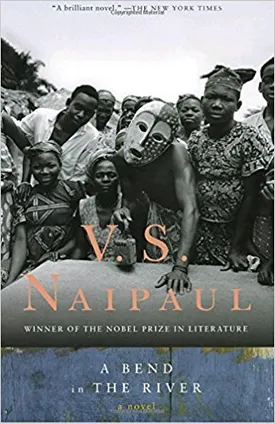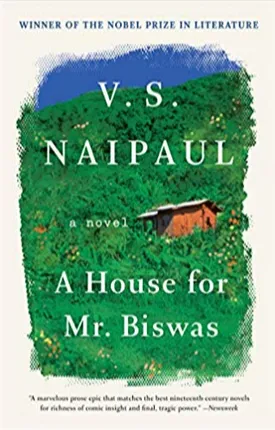Vidiadhar Surajprasad Naipaul
Vidiadhar Surajprasad Naipaul, referred to simply by his last name Naipaul, was an influential and widely celebrated author and man of letters. A Nobel Prize recipient in 2001, Naipaul was widely known as one of the greatest writers of the twentieth century, and was globally revered for his in-depth commentary and insight into post-colonial cultures and societies, particularly in the English-speaking world. His works of fiction, travelogue, and biography explored themes such as religion, colonialism, identity, and tribal relationships, painting a complicated, nuanced picture of the interplay between former colonies and their colonial masters.
Naipaul was born in Chaguanas, in Trinidad and Tobago, in 1932, with both his parents of South Asian descent, and was brought up in his father’s Hindu faith, while ultimately embracing agnosticism. His family emigrated to England in 1950, where he studied Literature at Oxford University. His first novel, The Mystic Masseur, was published in 1957 and met with positive critical acclaim, launching his literary career.
Naipaul continued to explore multiple subjects in his books, often favouring colonialism and its effects as a particular theme in his work. His 1965 novel, In a Free State, investigated the complex social, political, and racial dynamics present in a post-colonial setting. Other works such as A Bend in the River (1979) and A House for Mr. Biswas (1961) further illuminated his masterful sociological and philosophical insights.
Unlike many of his post-colonial contemporaries, Naipaul did not merely focus on criticisms of imperialism, but also stressed the importance of exploring the complex culture and identities of subject peoples as well. His 1978 work A Way in the World, for instance, focused on the intricacy and dynamism of the history and cultural relationships of the West Indies.
Naipaul’s literary works were not confined to fiction. His nonfiction works, such as An Area of Darkness (1964), What the Twilight Says (1998), and A Turn in the South (1989), offered comprehensive insight into particular locations and cultures he visited throughout his lifetime. He was an intrepid traveler, visiting over thirty countries throughout his life, while also maintaining an active presence in the literati of London and India.
In addition to his Nobel Prize, Naipaul was also the recipient of numerous other awards, such as the Booker Prize in 1971, the Laurence Stern Award in 1974, and a knighthood in 1990 (though he never used the title, referring to himself as Mr. Naipaul instead).
Throughout his life, Naipaul maintained a strong personal belief system, which he often used to inform and inspire his work. He was immensely critical of writers who pretended to know culture, of which he had a thorough understanding, declaring that writers should “be true to their own experience”. His literary works explored this belief, as well as a multitude of unique and invaluable insights into post-colonial culture and identity. We are fortunate that Vidiadhar Surajprasad Naipaul left such a wonderful and powerful body of work for us to appreciate and explore.


